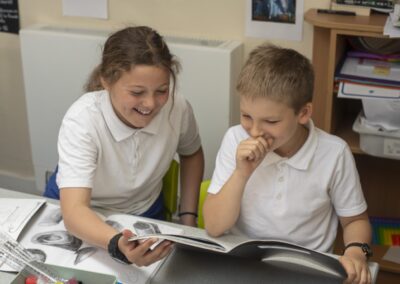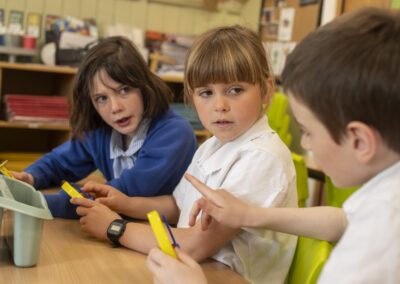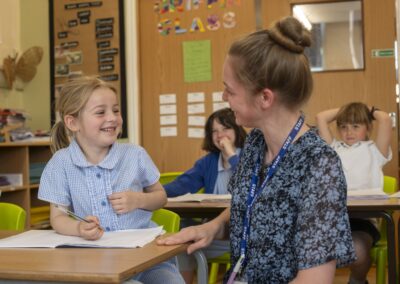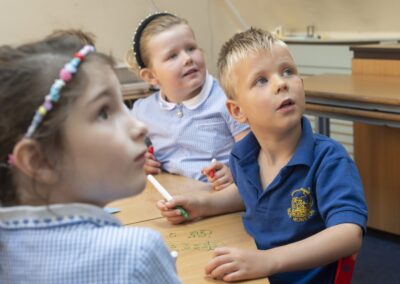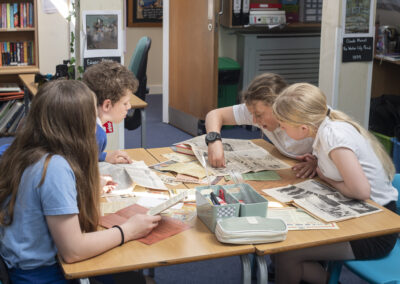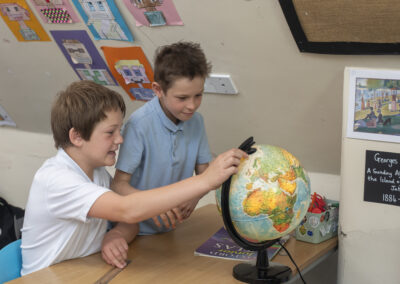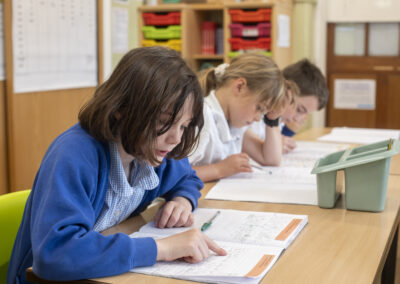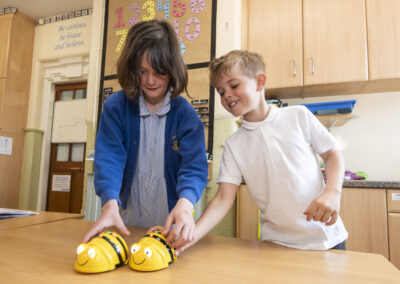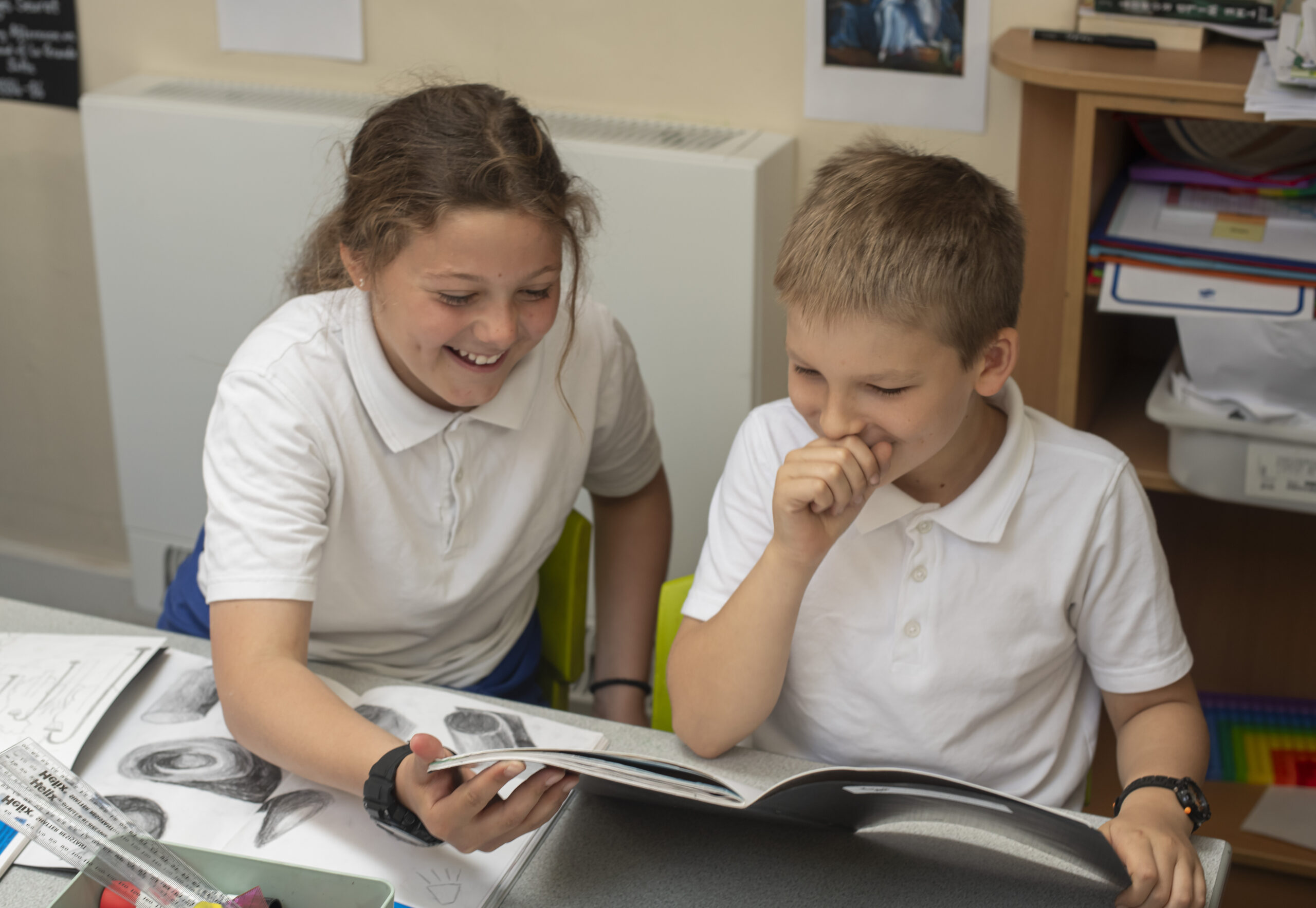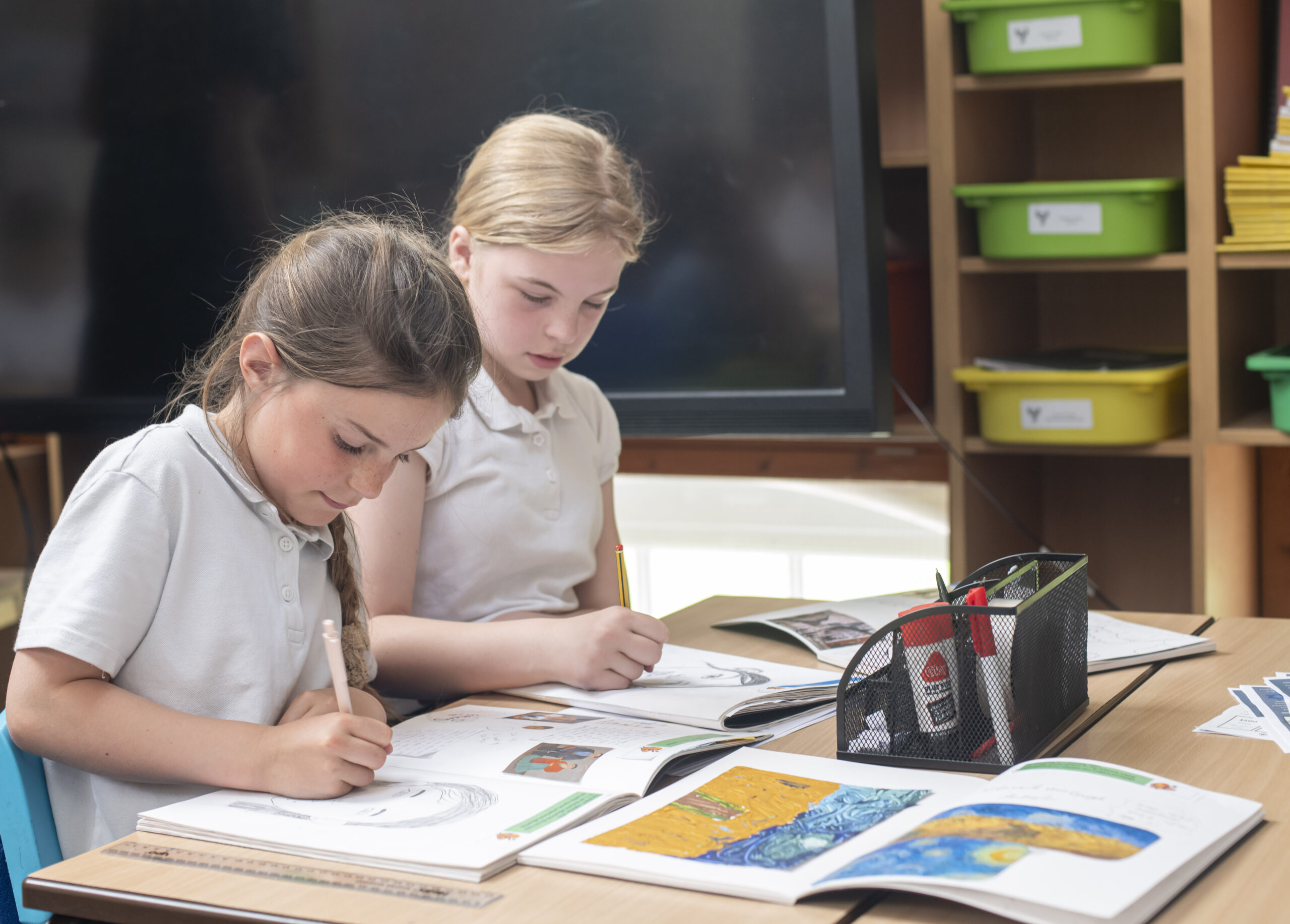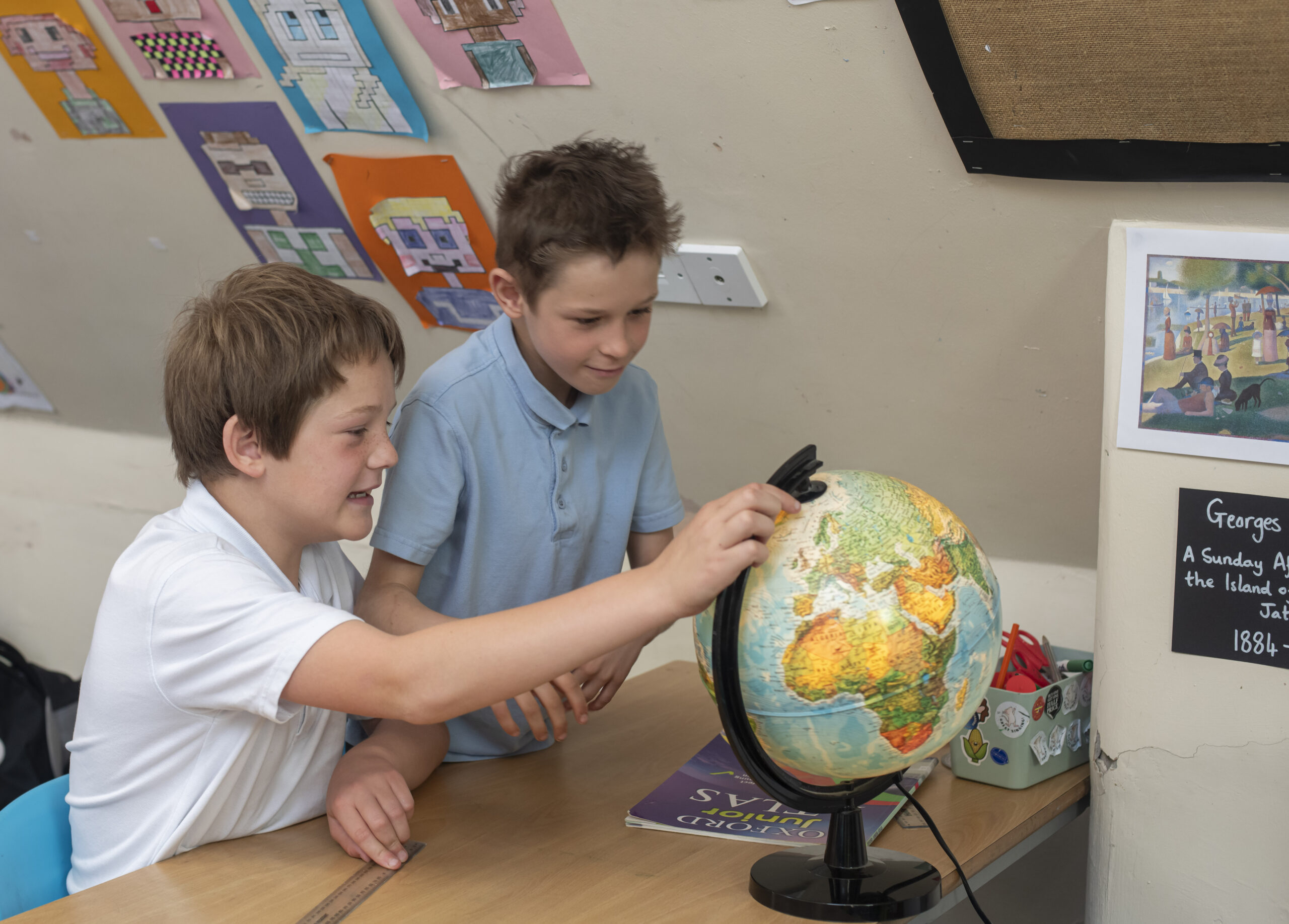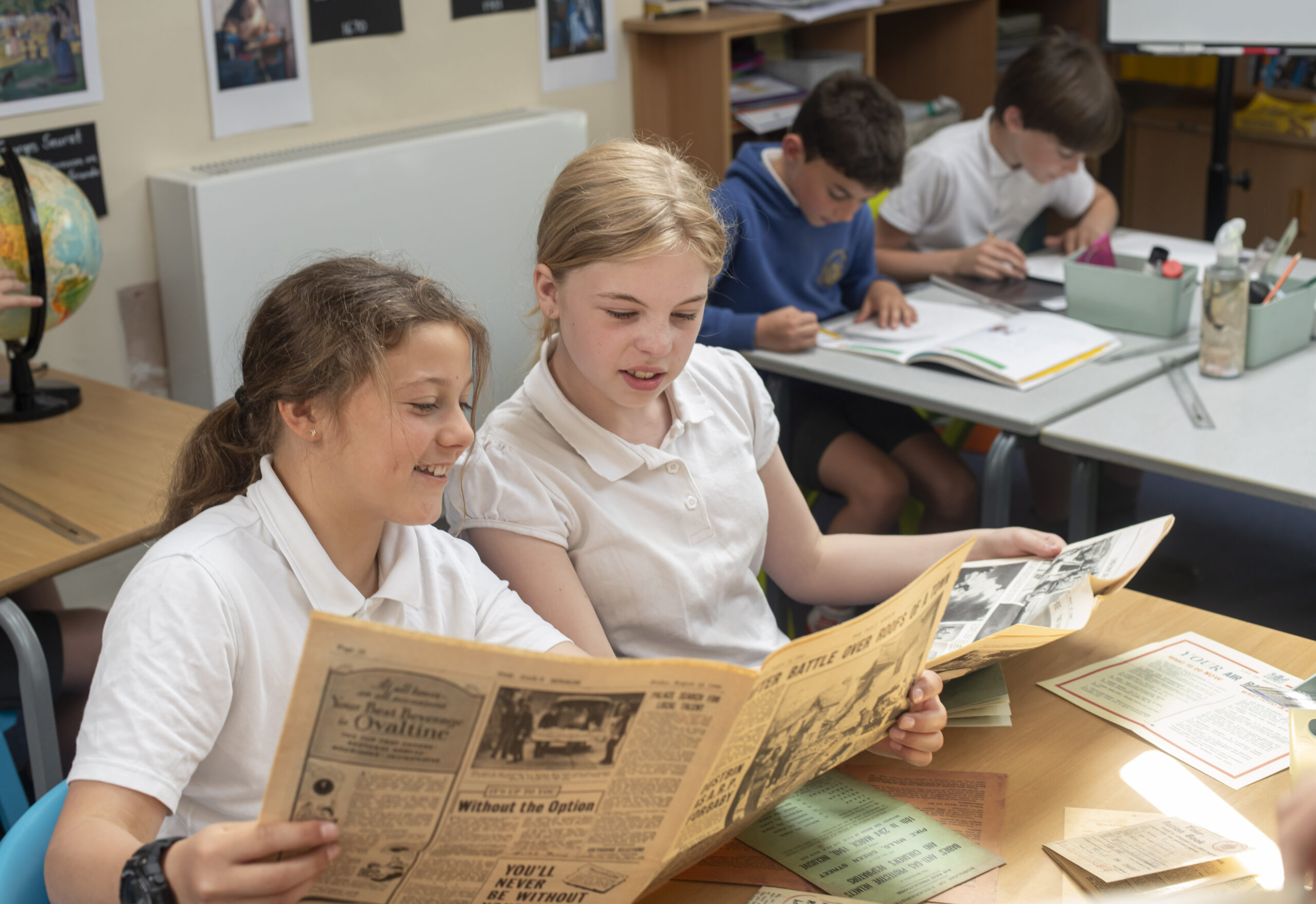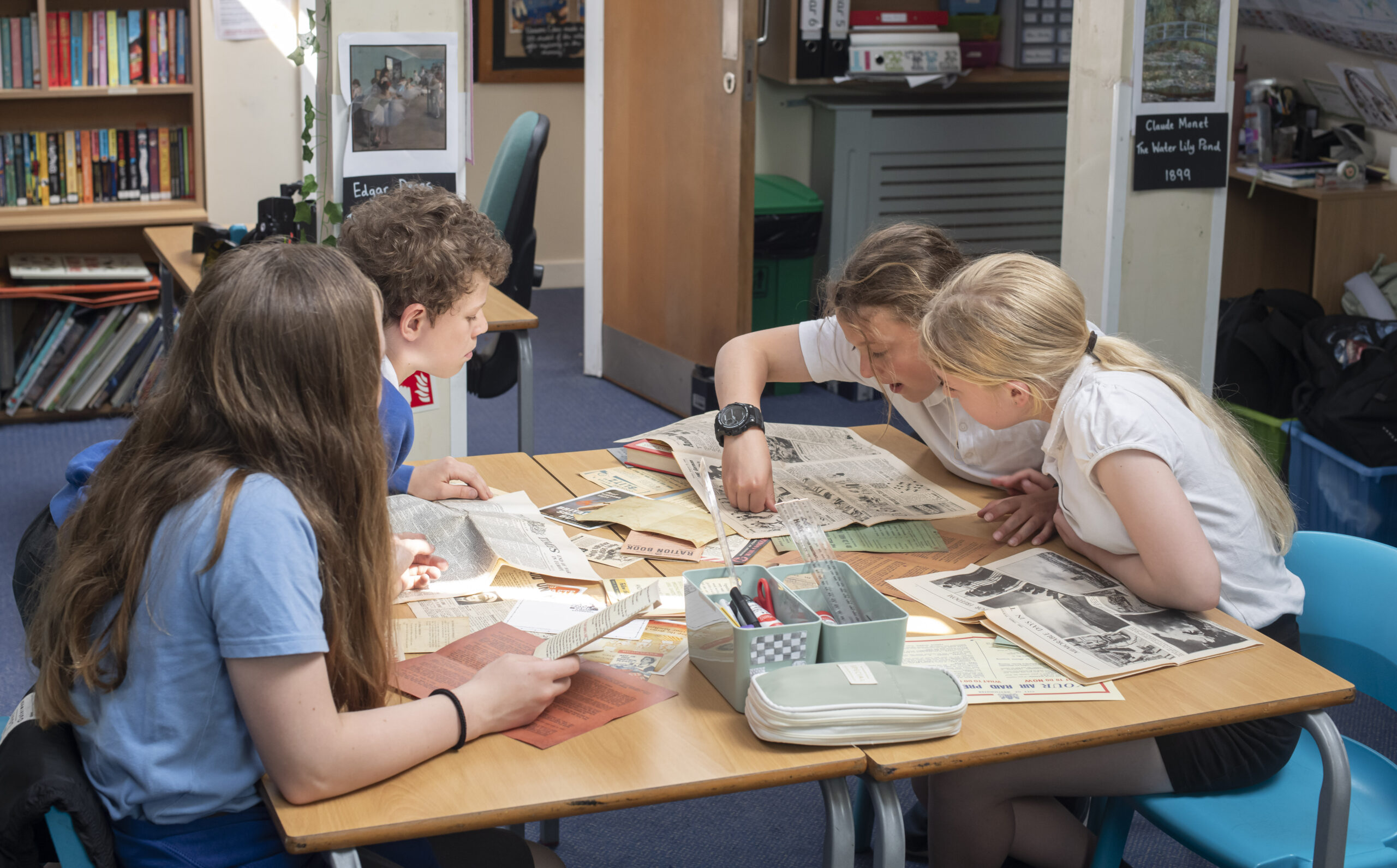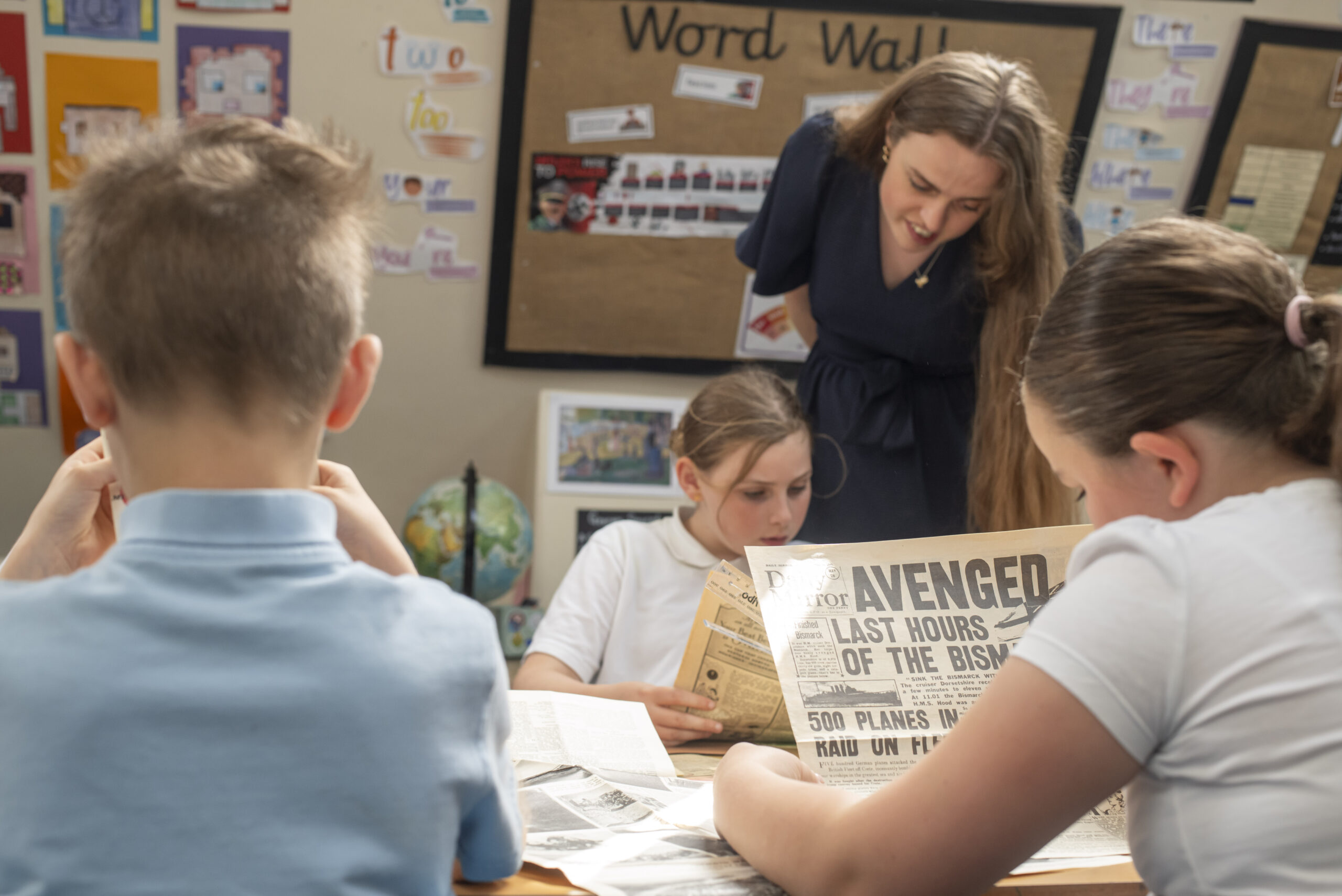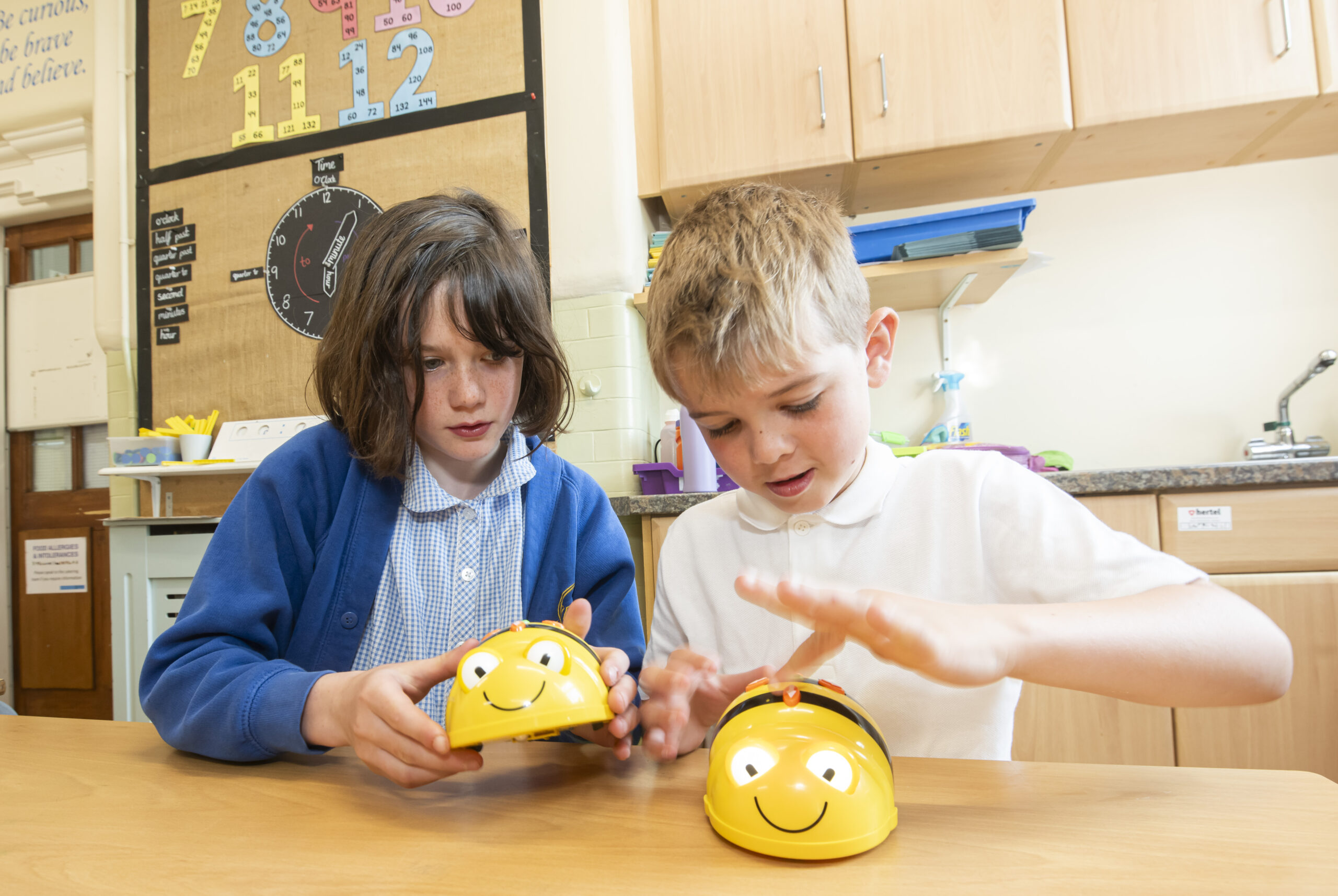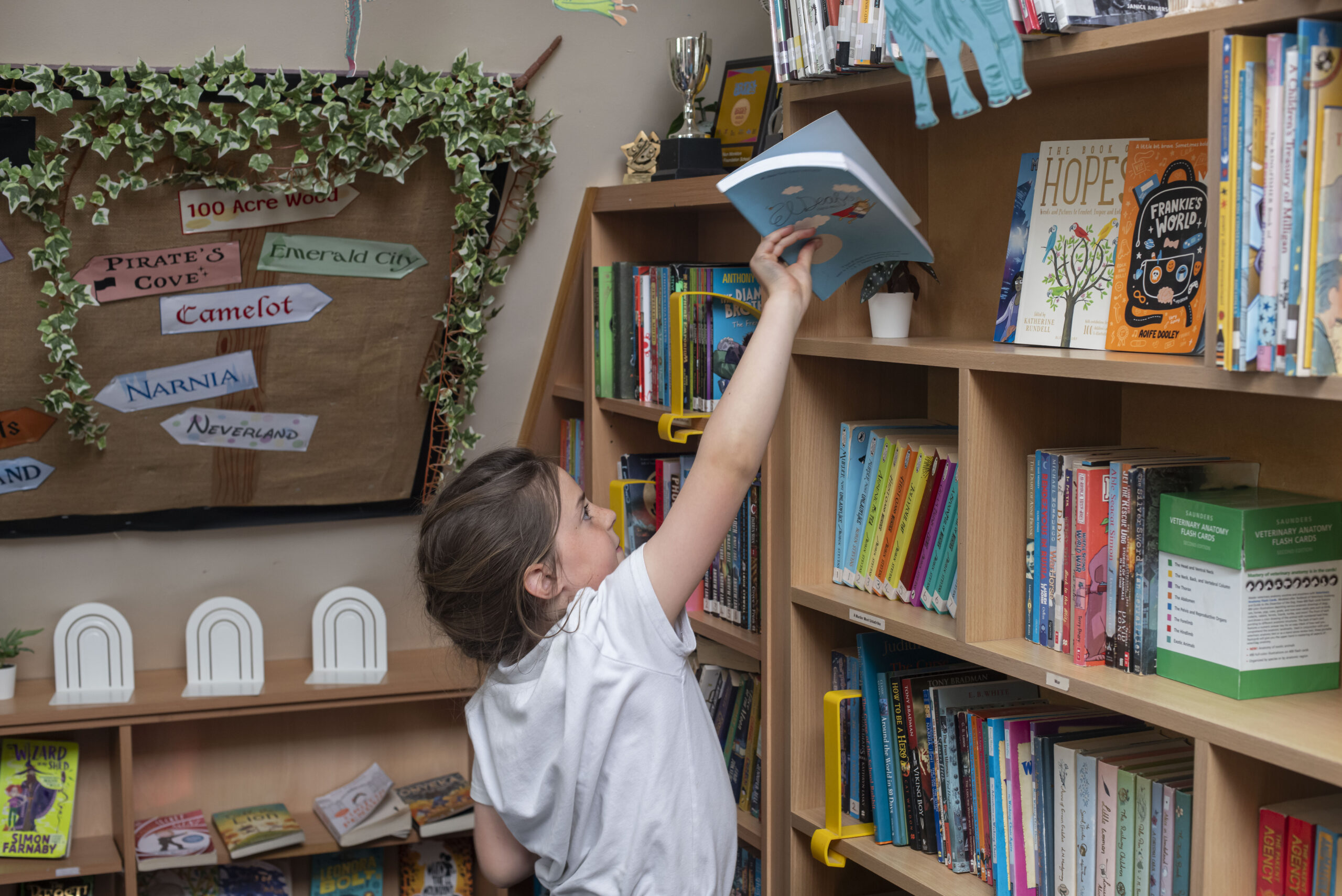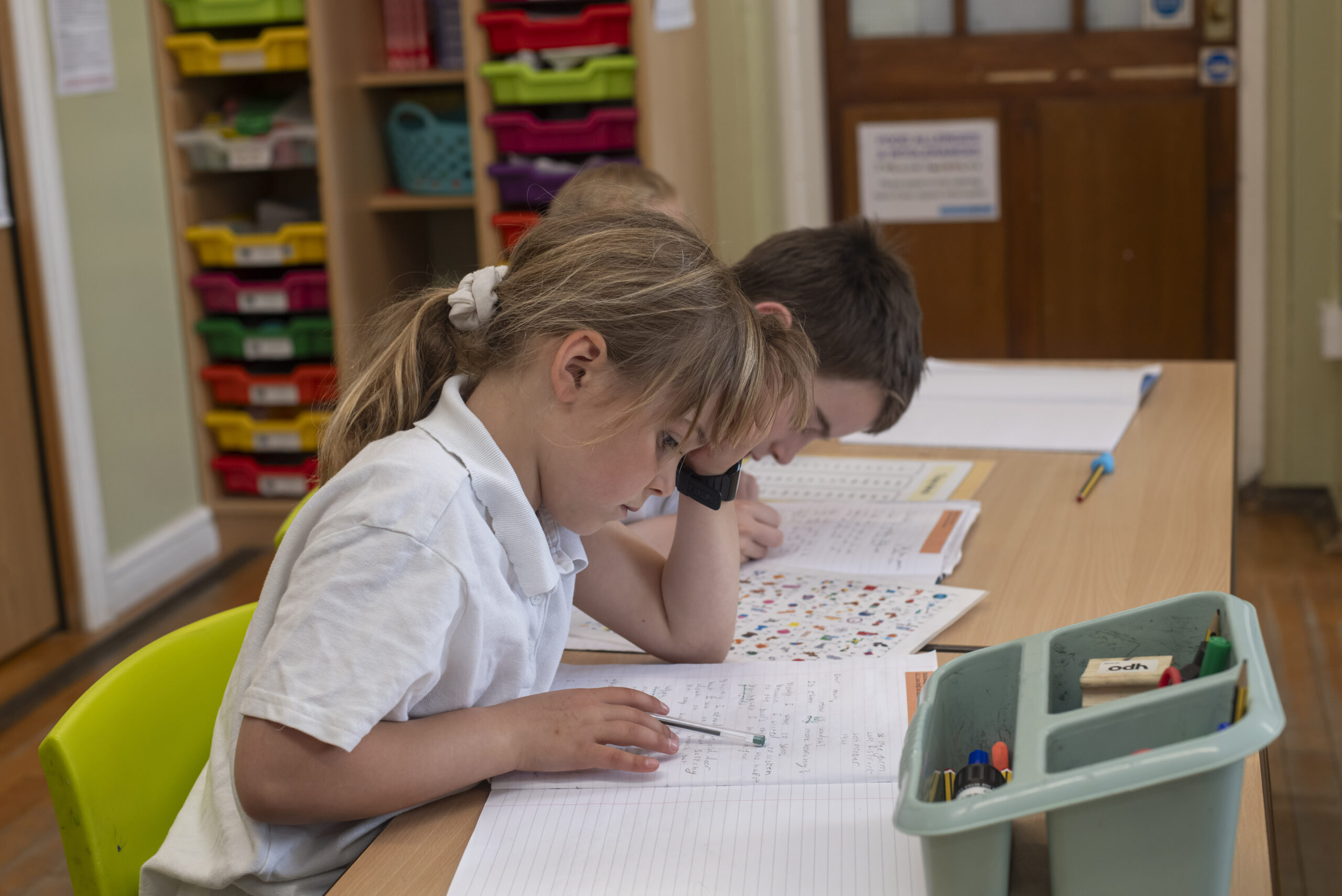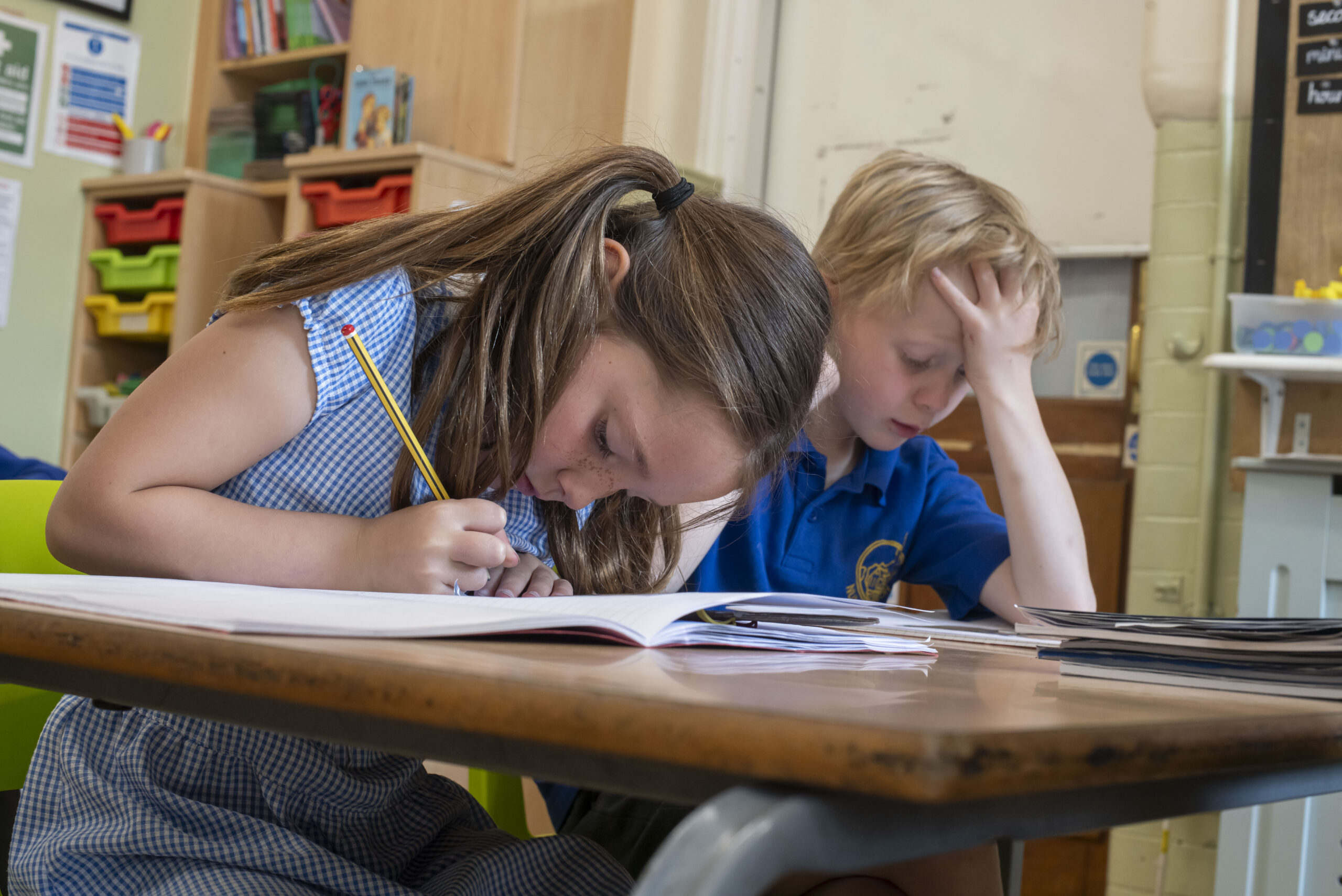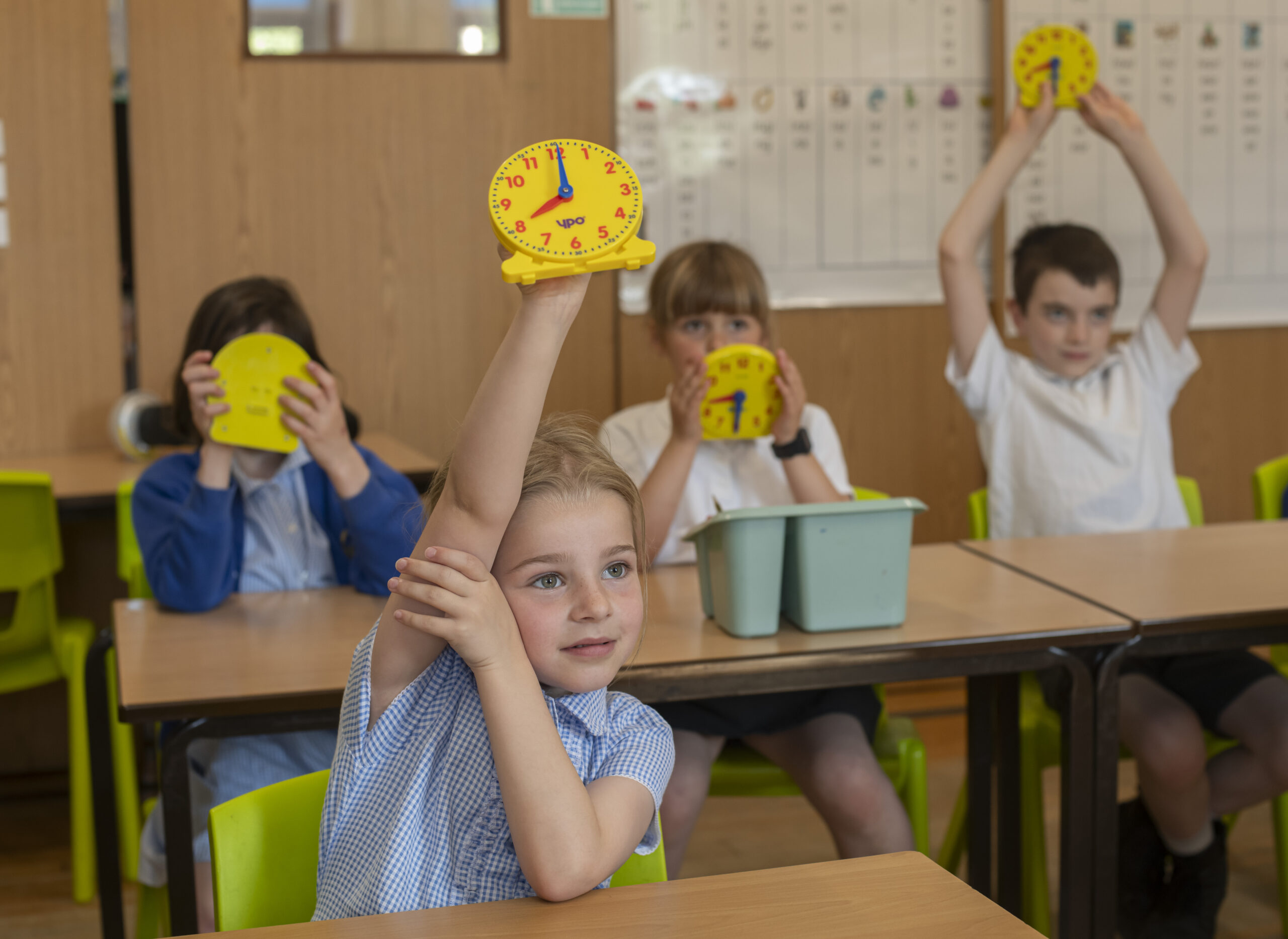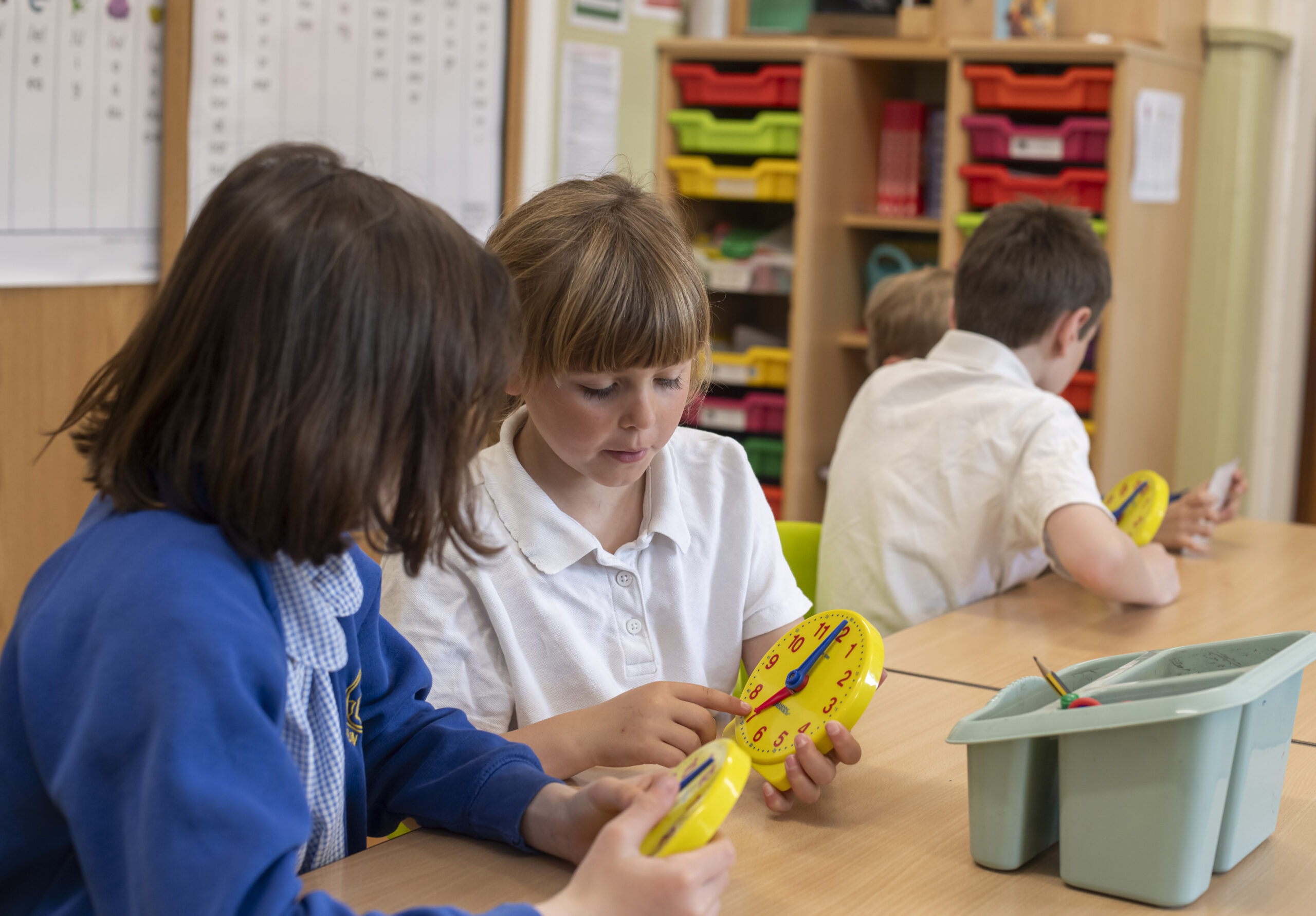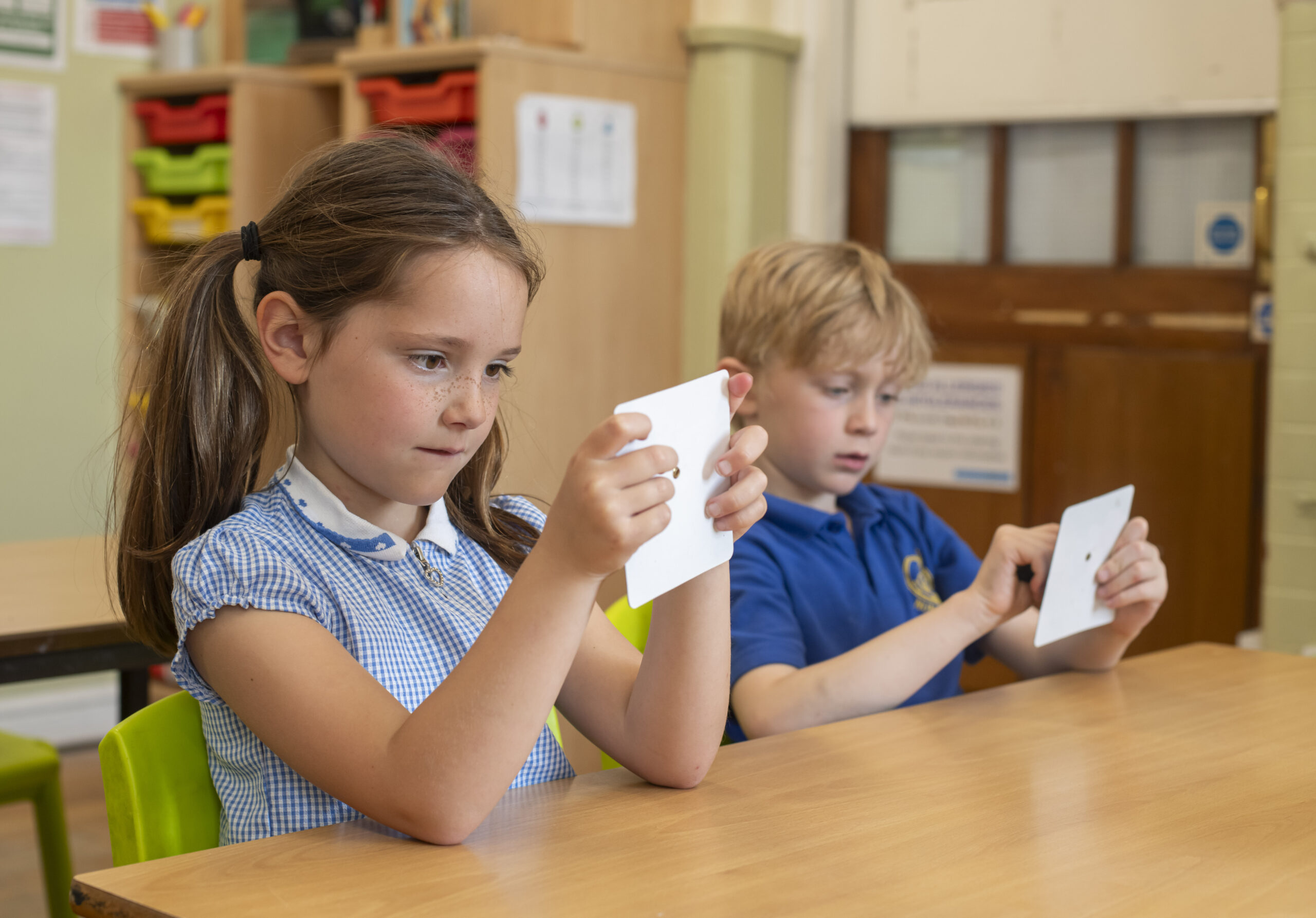Our Nun Monkton Curriculum
Here at Nun Monkton we don’t just teach the National Curriculum and the EYFS curriculum – we have an enhanced ‘Nun Monkton Plus’ curriculum where children are encouraged to be curious, to be involved, be interested, learn (and learn from mistakes) and to believe in themselves as they grow and develop.
Have a look below to get a flavour of how our pupils learn different subject areas and how they gain so much from the outdoor learning we have on offer. Read about how all our Key Stage 2 children have weekly singing lessons with York Minster’s Singing Lead and perform in York Minster each term, as well as learning how to playa musical instrument with violin lessons each week as part of our curriculum offer. All children take part in community events such as Nun Monkton Feast Day, complete with learning maypole and country dances, and Carol services and singing on The Green.
The opportunities to develop their social , moral, spiritual and cultural experience is wide and varied, whether that be through Educational visits out of school, visitors coming into school, PSHE lessons, Collective Worship or the happiness of communal breaktimes on the Village Green. Of course, the children do a lot of physical outdoor activity as well as indoor lessons, but take part in inter-school sporting events too. In small classes of 13 or under, children and the staff know each other well – all our pupils benefit from the fact the staff can really focus on their individual needs. Oh, and the whole of our Year 3, 4, 5 and 6 year groups go on a week-long residential to an outdoor activity centre every other year.
Sound like fun and effective learning? Have a look at the detail below and at our picture gallery to see the curriculum opportunities children enjoy here at Nun Monkton!
Our Curriculum Intent
At NMFPS the curriculum is designed to engage and inspire our pupils; to build on their curiosity, to excite and inspire them to learn; to celebrate and learn more about their locality, but also to learn about the diverse and amazing world beyond this small village.
Our curriculum will enable children to be confident, to be interested in learning, to strive for excellence and be proud of their own successes . Our curriculum supports and challenges and contains variety of learning and activities to keep pupils wanting to learn more. We want our curriculum to be so inviting that every day it hooks children in and makes learning and school irresistible. Children will learn indoors and outdoors. They use Forest and our community as a way of building up really strong skills of team work, problem solving, respect, encouragement etc as life skills to go alongside their academic learning. Our pupils show great creativity and benefit from many opportunities to experience and make music and art of very good quality. So, they leave our school as confident human beings who have a strong moral compass, ready to achieve and flourish in whatever they chose to do in the future, in whatever part of the world life leads them.
Our curriculum is designed to reflect and promote the visions and values of the school. It covers all aspects of the required National Curriculum and EYFS profile, along with unique features which extend opportunities and learning in our ‘Nun Monkton Plus’ curriculum. Our Big picture document shows the overall picture of curriculum learning at Nun Monkton School.
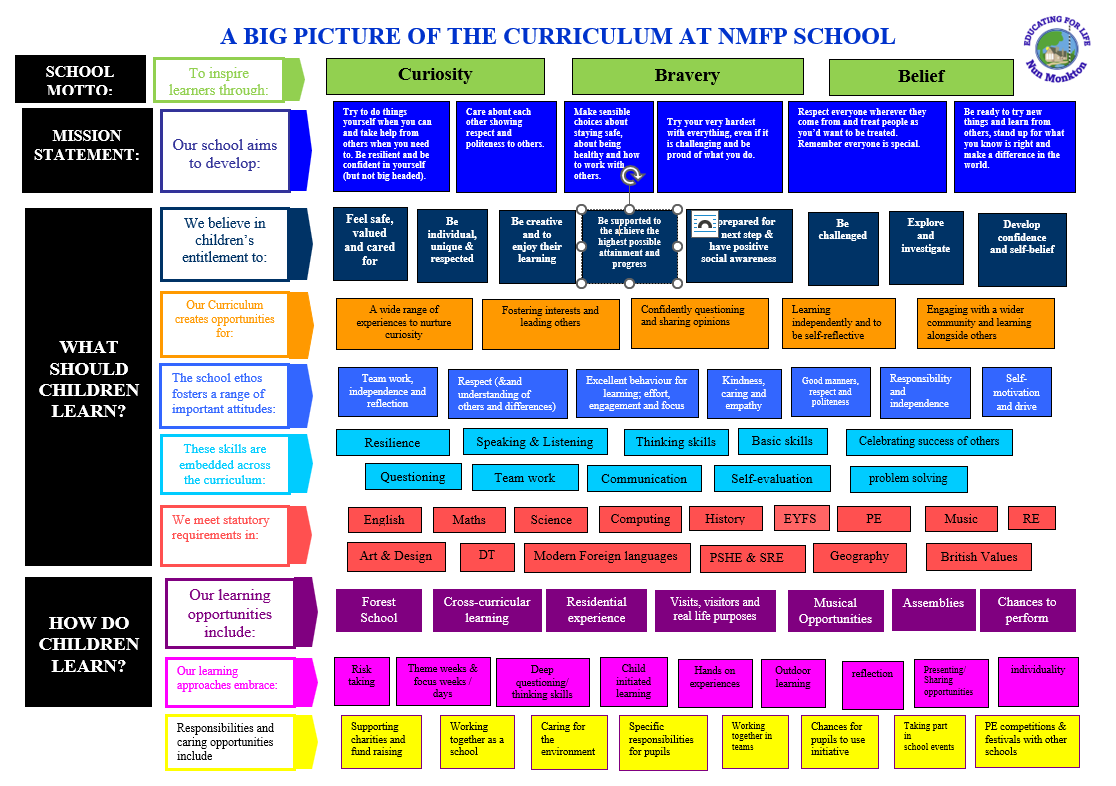
Our Curriculum
Click to view intent statement
Art and Design
Design and Technology
Forest
At Nun Monkton Foundation Primary School, we encourage children to learn through exploration, investigation and challenges. We strongly believe in the value of learning outdoors as it supports a greater understanding of nature and seasonal changes but also promotes physical health and exercise, mental health, emotional well-being
Every week we take all children to do ‘Forest School’ activities in a fabulous woodland setting about a mile’s walk from school. We go whatever the weather (unless weather conditions are too dangerous, so Waterproof clothing is a must at our school. It isn’t just the younger year groups, it’s every year group who do Forest school sessions. The Forest is a fantastic environment that all our pupils, particularly those with SEND adore, and now hosts a permanent wooden classroom opening up more opportunities to take learning outside without being exposed to the elements!
Children learn problem solving, team work, perseverance, social skills, delegation and planning skills with a range of activities from building shelters, taking turns around the fire circles or playing team games in the Forest. Children improving their physical skills such as balancing and climbing, as well as building up stamina on the walk there and back!
Children also use the Forest School to work on other curriculum areas, be that Literacy (which adverbs describe how you would creep, or flee through a wooded area?), Music or Design Technology. Children become proficient and confident in the safe use of tools, from saws to bradawls to bill hooks, to using a camp fire to cook (all under clear and careful supervision).
Have a look through our photo gallery to see the fun our children have whilst learning valuable life skills.
Geography
ICT / Computer
Literacy
Modern Foreign Languages
Personal ,Social, Health, & Citizenship Education (PSHCE)
Phonics and Reading
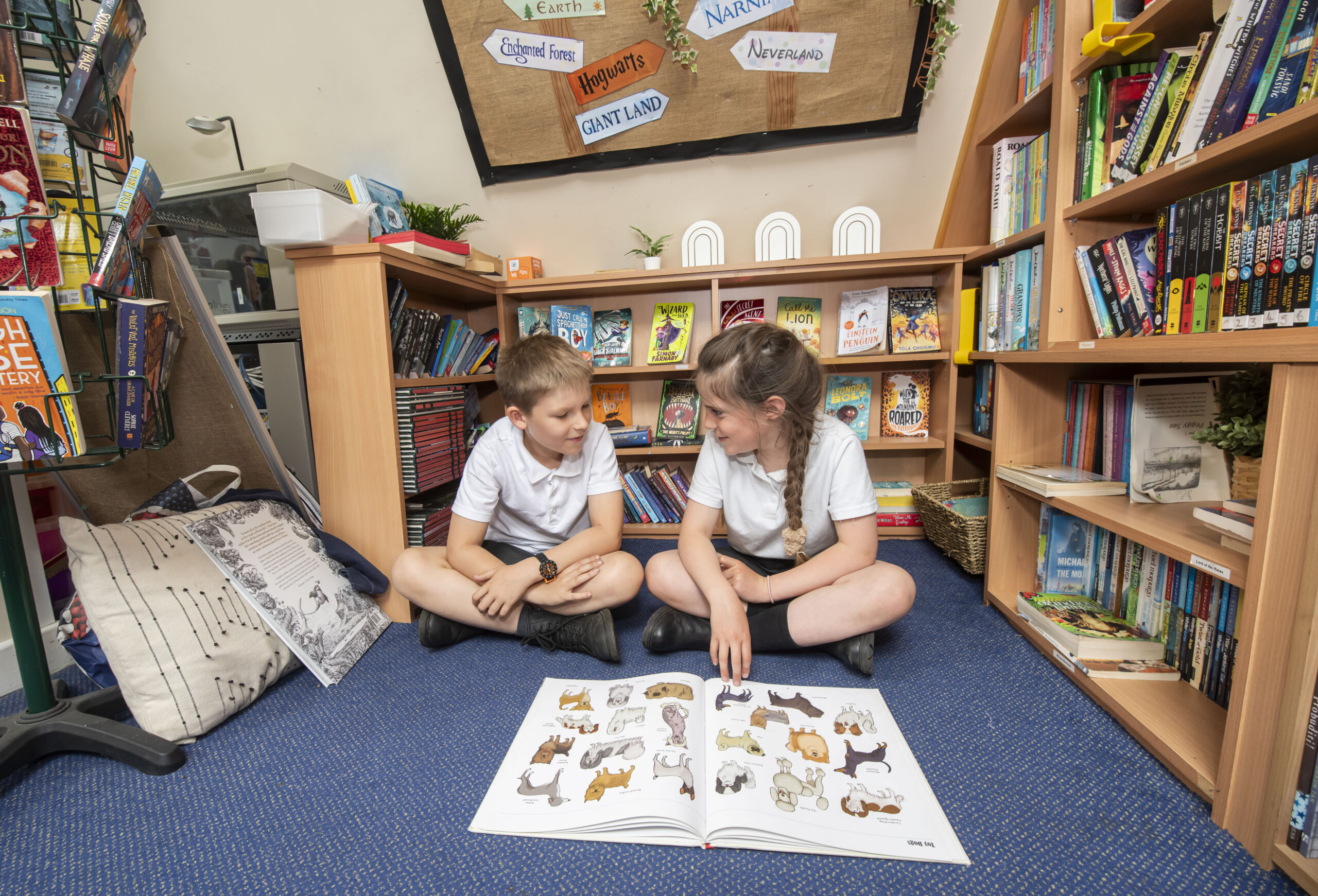 Developing a love of reading is a key priority for everyone at Nun Monkton Foundation Primary School. Children are immersed in reading throughout the school – whether that is through systematic and effective phonics learning, learning words and storytelling through song, listening to adults and each other reading, working on prosody or comprehension skills. Pupils see each other and adults reading a great deal and we have an attractive array of appealing books of different genres available for children throughout the school.
Developing a love of reading is a key priority for everyone at Nun Monkton Foundation Primary School. Children are immersed in reading throughout the school – whether that is through systematic and effective phonics learning, learning words and storytelling through song, listening to adults and each other reading, working on prosody or comprehension skills. Pupils see each other and adults reading a great deal and we have an attractive array of appealing books of different genres available for children throughout the school.
At Nun Monkton Foundation Primary School, we use Little Wandle as our phonics scheme.
We use Little Wandle reading books as our children develop their reading skills in EYFS and KS1. Some children will continue to use Little Wandle reading scheme into KS2 and may use the ‘catch up’ or SEND materials and programme from the Little Wandle resources as appropriate.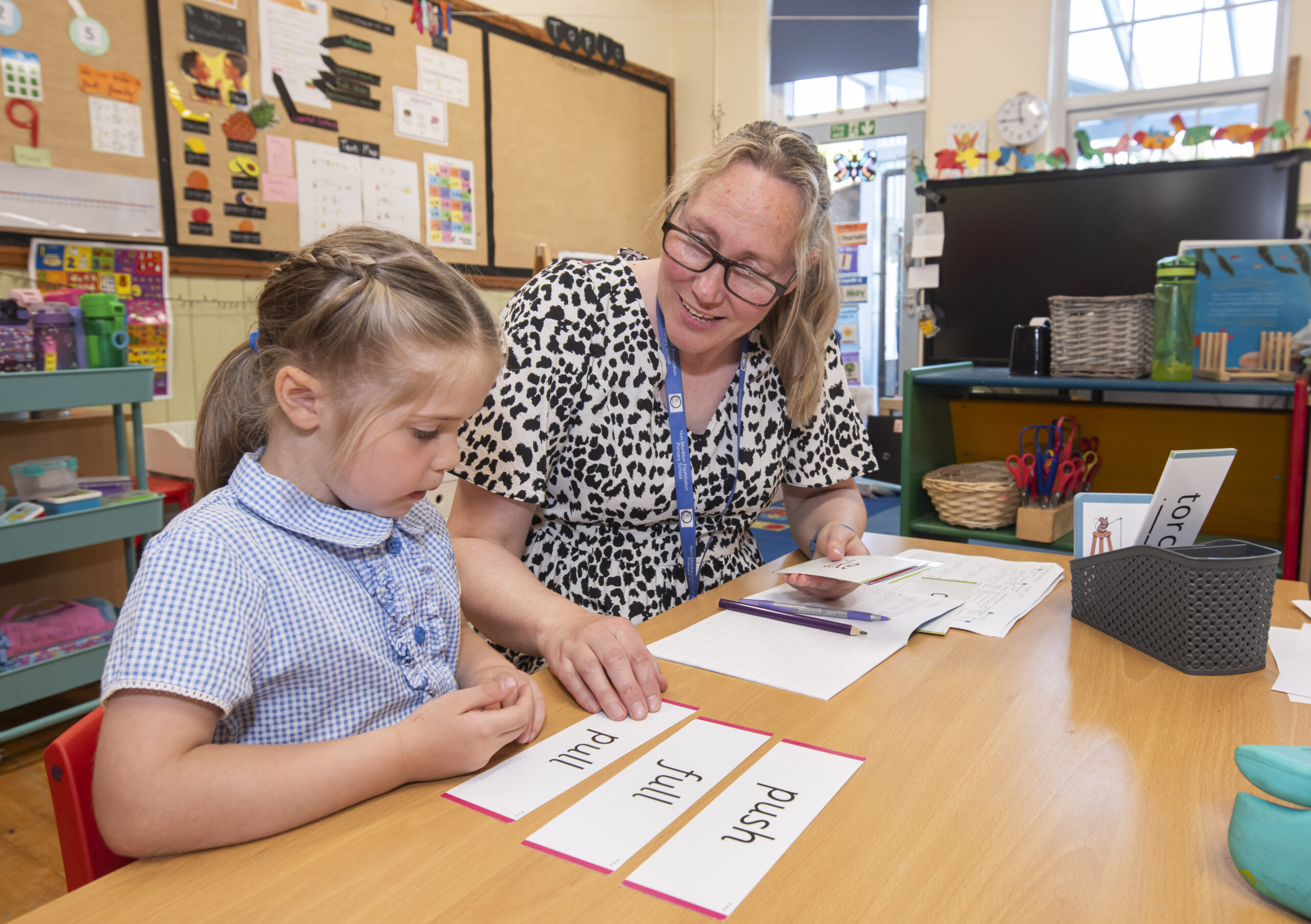
Physical Education
At our Primary School we encourage all children to lead a healthy and active lifestyle.
Our PE curriculum ensures that children are taught the skills needed to play a broad range of sports, take part in competition and understand the importance of physical activity. As well as this, we endeavour to allow opportunities for children to take part in sport and other physical activities that build their confidence, character and embed values such as fairness and respect.
All pupils have a scheduled PE lesson, which for two terms of the year also has a walk to and from the venue of 0.5m.
Sessions cover six main areas of the PE curriculum: Games (invasion games, net/wall and striking and fielding); Athletics; Dance; Gymnastics and OAA. Sessions are led by specialist staff from Sporting Influence (a local company whose specialist coaches teach PE alongside class teachers to provide weekly PE sessions for our pupils). We also ensure that children are able to swim confidently. For 2023/24, 86% of our Y6 pupils could swim competently, confidently and proficiently over a distance of at least 25 metres; use a range of strokes effectively and perform safe self-rescue in different water-based situations
School staff may also lead pupils in some aspects of PE (for example Dance). In June our children learn country and Maypole dances to perform at the Village Feast Day – a really distinctive feature of our school!
All pupils take part in Outdoor activities through weekly Forest School Sessions (please see Forest School Intent document). These sessions involve walking to and from the site (about 1 mile) and active outdoor activity once at Forest.
In addition, children take part in a range of inter-school tournaments and competitions throughout the year, which see all of our year groups travelling to take part in these events at other school venues. Every two years all of the KS2 children (Years 3 – 6) enjoy a week long Residential Visit where outdoor activities and Orienteering activities are pursued and new sporting challenges and skills learnt (skiing, rock climbing, canoeing to name but a few).
Science
Spiritual, Moral, Social and Cultural Development and British Values
At Nun Monkton we ensure that children have a range of activities and opportunities in which to broaden their spiritual, moral, social and cultural (SMSC) development.
All of these important aspects are covered through Collective worship themes, our enhanced curriculum opportunities and our PSHE teaching and learning, as well as being things we promote throughout the working week through our school’s ethos and aims.
This document gives an outline of the broad range of SMSC provision. It highlights our exciting extra-curricular activities and the stimulating teaching and learning opportunities that we aim to deliver.
Our children experience a wealth of opportunities for their Social development, including running a ‘pop up café’ at the Open Gardens Event at Nun Monkton Priory, daily social time with children across all year groups playing and eating together, taking part in sports events, encouraging each other on activity challenges during our bi-annual Residential
Our opportunities for children to develop Moral understanding are many and daily, from considering opinions and choices during Collective Worship or PSHE, to working out problems in Forest or at playtimes, knowing if and when to ask for adult help and when to work things through themselves. Our children have a very good sense of right and wrong, learn from mistakes and work together to ensure they get along well with each other and they are respectful of all.
We offer children opportunity to experience Spiritual awe and wonder – at Forest when exploring the wonder of the natural world and responding to it, at events such as taking part in the Advent Wreath raising in the spectacular setting of York Minster, where one of our pupils placed a candle nearly her own height in the huge advent ring and all the KS2 pupils took part in singing during the service.
Our Cultural offer sees children going on visits to the theatre, taking part in maypole dancing within the local community’s traditional Feast Day, to see a Christmas play or pantomime and a range of other experiences.
We have a focus on each of the British Values of tolerance, mutual respect, democracy, the rule of law and individual liberty for a half or full term each year. In that way, collective worship and PSHE teaching can cover aspects of that individual British Value and children are aware of each of those values. Enhanced by displays in each classroom, children can question, learn, discuss and reflect on these five key themes. A recent example was during History work in Spring term 2025, when Year 2 and 3 pupils considered ‘Mutual Respect’ whilst learning about reaction to the Windrush Generation and Years 4 – 6 considered the same value in conjunction with work about Notting Hill Riots and The Bristol Bus Boycott in period after 1948.
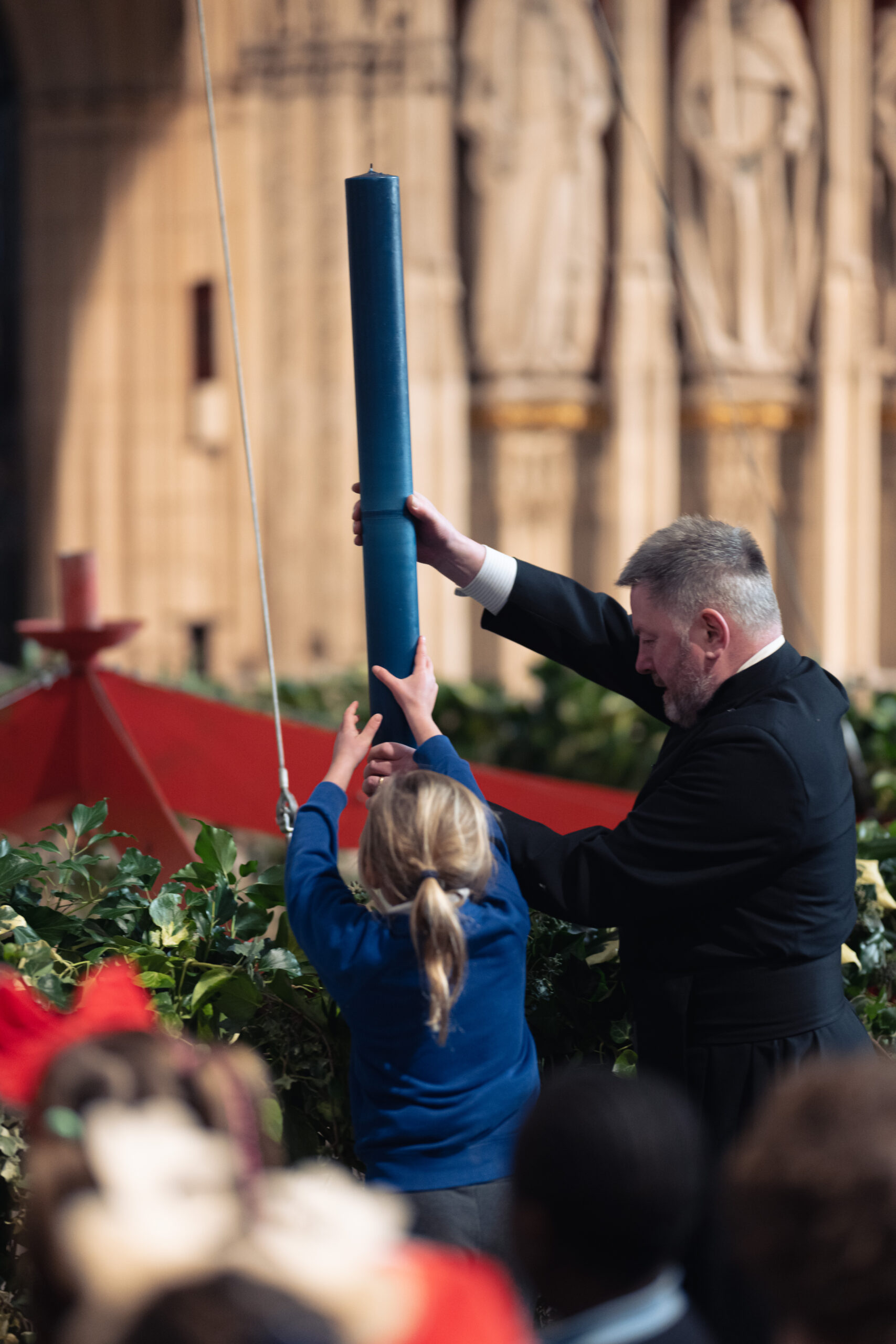
Homework Guidance
Why we are setting homework:
- At our school we aim to set challenging homework, which provides challenge appropriate for the age and stage of pupils.
- Homework we give to pupils has several purposes: to consolidate learning, deepen understanding and help to prepare pupils very well for work to come.
Expectations of homework (general)
- At Nun Monkton we take the homework tasks seriously and expect the children to do so too. We expect children to return completed homework promptly, to have done the task well and to have completed it to the same high standards of quality and presentation we would expect of them at school.
- In EYFS and Year 1 we would ask that parents/carers would work with their child; in Year 2 we would hope that parent/carers would give guidance, but encourage the children to become increasingly independent. As a child goes through Y2 and beyond, the staff would expect that homework tasks will be independently completed, reflecting standards demonstrated by the child in class. We would appreciate it if parents/carers would still check the homework done by their child.
- We would expect every child to have completed the homework activities.
- We would ask parents/carers to encourage their child with their homework and support them at a level appropriate to the child’s age. Year 3 to Year 6 children should be able to complete homework independently and are encouraged to return and ask the relevant teacher if they are stuck with their homework. For homework to be of value it is important that it is done by the child without significant adult input.
- Children are expected to complete homework and return it to school at the requested day (Wednesday).
- We will always be supportive and show understanding if there is an exceptional circumstance why a child cannot complete homework. We would hope that a parent/carer would communicate with the class teacher about any such circumstances.
Guidance for parents/carers:
- To meet some children’s additional or individual needs, teachers may give some children different homework.
- If children still want to do more learning at home, then there are many activities on BBC bitesize or Doodle which give children the opportunity to practise skills from another year group or that will consolidate skills they are covering in class.
- Prompt returning of homework is vital so that teachers can check homework and have books ready to be given out for the next set of homework.
- We would encourage children to do their homework in a quiet place where they can concentrate and where there is a table to work at (if appropriate for the task).
- We expect pupils to complete maths work in pencil.
- We expect children to complete their Literacy homework in pencil.
- We expect children in Years 2 – 4 to complete their Literacy homework in pencil. Year 5 and 6 children would usually be expected to complete their Literacy in pen.
How long should the homework tasks take?
- Below are details of what should be done in each area of the school and how long should be spent on the homework activity.
- A child should spend no longer than the given time on the homework tasks unless they choose to.
Reading
All children in the school are expected to read at home. This is the main focus for Reception (and Nursery) children for work at home, but the expectation is that all the children in the school would read at home at least three times a week.
Literacy and Maths tasks
|
Year Group |
Tasks |
Maximum expected time to spend on these tasks in total |
|
Reception |
Reading as detailed above, helping children to get into a regular routine of reading. Please could Reading records be brought into school every day and reading books brought back on a Friday so that the next one can be given to your child to take home. |
We ask that you aim to read three times with your child throughout the week, to allow them to really become confident at reading and chatting with you about the book. |
|
Year 1 |
|
10 minutes |
|
Year 2 |
|
15 minutes |
|
Year 3 |
|
20 minutes |
|
Year 4 |
|
25 minutes |
|
Year 5 |
|
30 minutes |
|
Year 6 |
|
40 minutes |
This policy supports our school aims to:
- Enable children to become independent and confident learners; well-rounded characters who are self-aware, reflective and resilient individuals.
- Create a safe and stimulating place where children are happy and enthusiastic learners, where they learn how to keep themselves safe and healthy, able to communicate & work in a team, developing confidence and life skills together.
- Encourage everyone to have high expectations of themselves and others, supporting and challenging everyone to achieve their best, developing a strong work ethic, self-motivation and taking pride in their achievements.
- Provide a wide range of interesting and exciting learning opportunities to enthuse everyone to be lifelong learners, through engagement in a curriculum that instils values for life and prepares pupils for wherever their journey takes them as adults.

